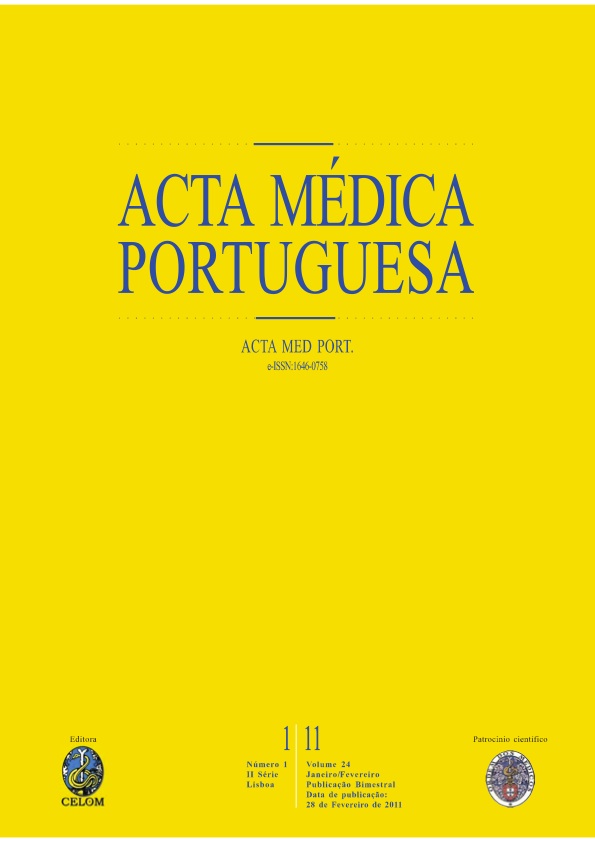New insights in adult Still disease's knowledge.
DOI:
https://doi.org/10.20344/amp.328Abstract
Adult Still's Disease has systemic consequences, an inflammatory origin and unknown etiology. Knowledge about this disease is still limited, but some evolution has occurred in the last few years.Using a clinical case as example, the purpose of this paper is to review actual knowledge about Adult Still's Disease, giving special relevance to the most recent findings.Search in Pubmed and Cochrane database (1970-2009) for the terms Adultonset Still's Disease for all available papers. Those considered clinically and historically relevant were selected. An additional search was done in scientific journals and textbooks and other web sites. The information was analysed, using a clinical case in an atypical age as illustration.Adult Still's Disease as multiple manifestations, being fever, evanescent skin rash and arthralgia the most typical. Laboratorial parameters are inespecific, but high glycosilated ferritin is highly suggestive. Non-steroid anti-inflammatory, corticoids, immunosuppressors, and recent biological agents are used in treatment.Being uncommon, actual knowledge about this disease is based in isolated descriptions or very short series. There are no specific guidelines, but diagnostic criteria have been improved in recent years, as have the insights in pathophysiology and therapeutic resources.Downloads
Downloads
Published
How to Cite
Issue
Section
License
All the articles published in the AMP are open access and comply with the requirements of funding agencies or academic institutions. The AMP is governed by the terms of the Creative Commons ‘Attribution – Non-Commercial Use - (CC-BY-NC)’ license, regarding the use by third parties.
It is the author’s responsibility to obtain approval for the reproduction of figures, tables, etc. from other publications.
Upon acceptance of an article for publication, the authors will be asked to complete the ICMJE “Copyright Liability and Copyright Sharing Statement “(http://www.actamedicaportuguesa.com/info/AMP-NormasPublicacao.pdf) and the “Declaration of Potential Conflicts of Interest” (http:// www.icmje.org/conflicts-of-interest). An e-mail will be sent to the corresponding author to acknowledge receipt of the manuscript.
After publication, the authors are authorised to make their articles available in repositories of their institutions of origin, as long as they always mention where they were published and according to the Creative Commons license.









